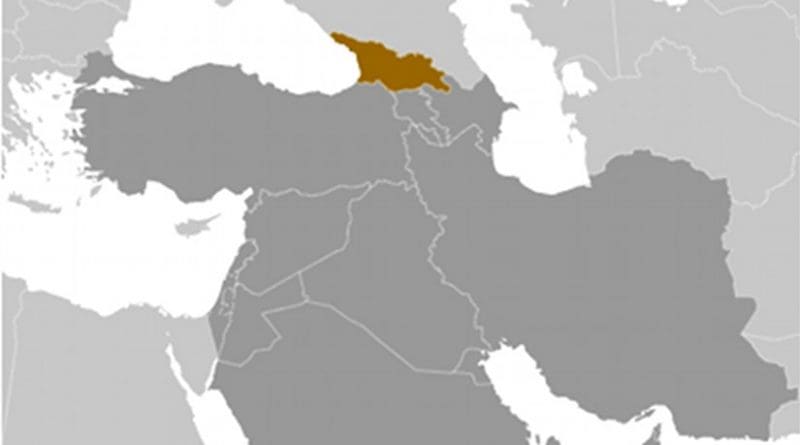Georgia: Football Federation Gets New President In Election Marred By Delegate’s Arrest
By Civil.Ge
(Civil.Ge) — A government’s favored candidate, Levan Kobiashvili, has become a new president of the Georgian Football Federation (GFF) in an election, preceded by about 18-hour detention of one of the federation delegates and marred by allegations of meddling from the government.
Kobiashvili won the race by three votes – 18 delegates out of total 33 voted for him and 15 for his main competitor Revaz (Rezi) Arveladze, a retired footballer who served as GFF Secretary General. None of the delegates voted for a third candidate, Mamuka Kvaratskhelia.
Kobiashvili, 38, a retired footballer, who spent 16 years of his career playing for German clubs – first in SC Freiburg, then in FC Schalke and most recently in Hertha BSC, enjoyed backing of his former national football team-mate Kakha Kaladze, who is now Georgia’s deputy PM and Minister of Energy.
On the eve of the election day, one of the delegates, Gega Gobejishvili, was arrested by the police late on Friday evening. As a delegate, he was going to vote for Arveladze in the race for GFF president.
He was charged under the code of administrative offenses – which deals with misdemeanors, not criminal offenses – for allegedly using drugs illegally.
His friends and relatives were saying that Gobejishvili was arrested on trumped-up drug-related charges in order to sideline him from the vote and thus give advantage to government’s favored candidate.
Next morning GFF delegates started gathering at an assembly in Holiday Inn hotel in Tbilisi. But delegates, supporting Arveladze, refused to undergo registration, required for the assembly to open, as long as Gobejishvili remained behind bars. Arveladze’s supporters were saying that one of the delegates was arrested just because of his support of a candidate, which the government did not want to win.
Meanwhile, Kobiashvili was accusing his competitor’s supporter delegates of trying to thwart the assembly by citing a reason, which had nothing to do with the election of GFF president.
A court hearing into Gobejishvili’s case was held late on Saturday afternoon and he was released after the judge fined him with GEL 500. But by that time, Gobejishvili had already been replaced as a GFF delegate by another person.
Presence of Energy Minister Kakha Kaladze at the gathering of the Georgian football governing body in the Holiday Inn hotel has further fueled allegations about meddling from the government.
Kaladze, himself a former footballer who won UEFA Champions League with AC Milan twice, said that he was at the gathering as a “guest”, as well as a host of UEFA vice-presidents Grigoriy Surkis with whom, he said, has “friendly” relations. Kaladze also rejected allegations that Gobejishvili was arrested in order to give advantage to Kobiashvili in race for GFF presidency.
Surkis, who was present at the GFF assembly, said on Saturday evening that it was possible to resolve the issue through negotiations with the two leading candidates, paving the way for the assembly to open.
After the vote, which was held later in the evening, Arveladze hugged Kobiashvili and congratulated him on victory.
Kobiashvili, elected on the post of GFF president for a four-year term, has replaced Zviad Sichinava, who led the federation since 2009.
GFF is no stranger to allegations over government meddling in its affairs. In 2007 when Giorgi Nemsadze was elected as federation president, he stepped down in a surprise announcement just few hours after the election, which prompted speculation about interference from then government members.
GFF has been a target of heavy criticism in recent years, mostly because of poor results by the Georgian national team. In FIFA’s most recent official ranking, Georgia is 110th – up by 37 places, apparently thanks to 1:0 win against Scotland in EURO 2016 qualifier in early September in Tbilisi.

